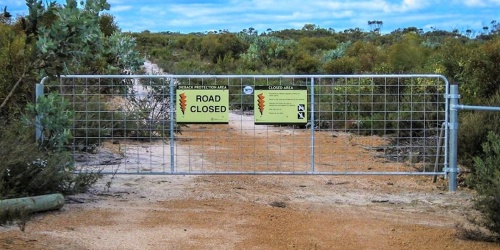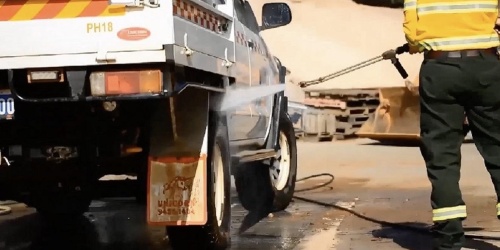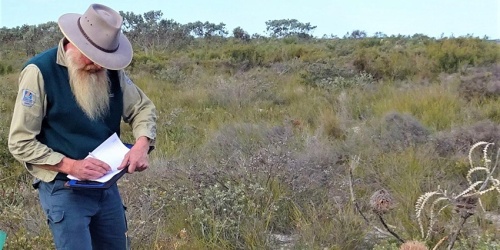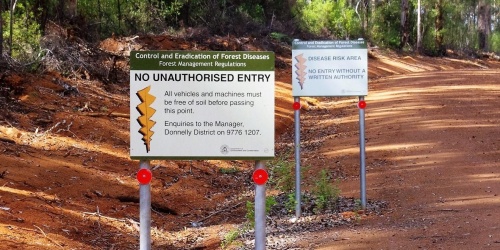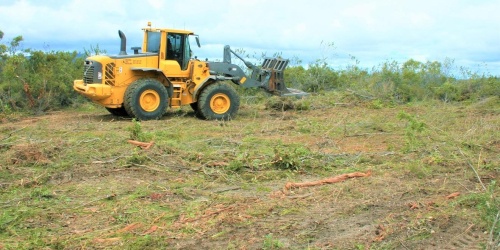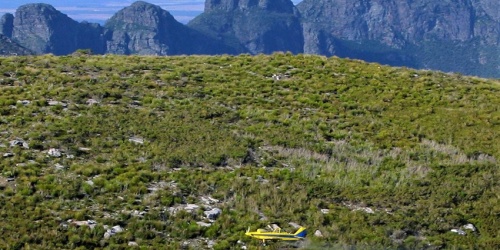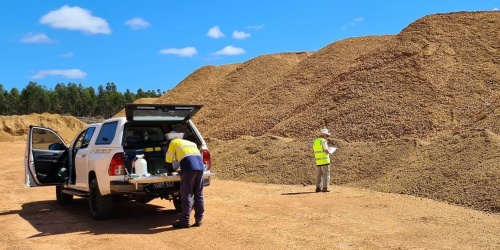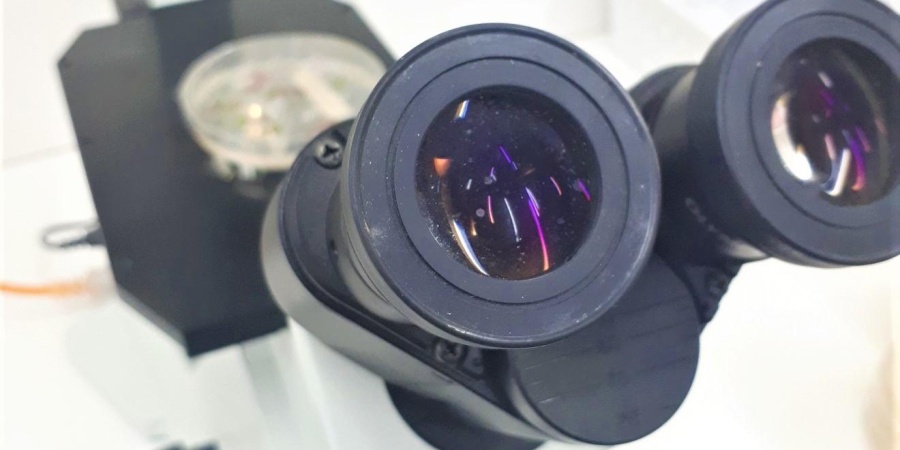
Close up of microscope with Phytophthora samples being viewed
Samples of soil, plant material or (under certain conditions) water can be tested for the presence of the microscopic plant pathogen, Phytophthora. The department's Vegetation Health Service (VHS) is a dedicated commercial Phytophthora diagnostic laboratory based at DBCA headquarters in Kensington.
The VHS offers a specialist scientific service for the detection and identification of Phytophthora species from samples associated with Western Australia’s forest and conservation estate, timber harvesting and mining activities, private industry and research.
Phytophthora species present in the samples provided are detected using a method which involves flooding a sub-sample of the material in a container and 'baiting' the swimming spores of the Phytophthoras using the young leaves of susceptible plants, such as Eucalyptus sieberi. Phytophthora species are isolated from the baits and examined under the microscope where they are identified or sent to the Centre for Phytophthora Science and Management (CPSM) laboratory for identification using DNA sequencing.
Costs and services
The standard service involves single baiting of samples of soil and plant-root material for the presence or absence of plant pathogens from the genus Phytophthora. Single-baited samples are flooded and baited for Phytophthora only once. The service Includes a report confirming your sample test results.
Double baiting
Some sites or projects may require double baiting of the soil and plant-root material samples. These samples follow the same process as single-baited samples except that after baiting once, they are dried out, flooded and baited a second time. Some research has shown that double baiting can increase the detection of Phytophthora in samples. This service can be offered on request by prior arrangement.
Large jobs
Large jobs of 100 samples or more may attract a discounted rate. Contact the VHS for further information.
Cost
The prices for standard and double-baiting are provided in Vegetation Health Service Costs and Services document available in the download section at the bottom of this page.
Collecting and submitting samples
If you want to know the dieback status of a site we strongly recommend that you do not rely on sampling alone but that you engage a registered Phytophthora Dieback Interpreter (Interpreter). As part of the interpretation process, an interpreter will strategically sample the site, submit the samples to VHS for analysis, interpret the results and incorporate those results into a dieback report and map.
If you are taking samples yourself, refer to the Sample Collection Guidelines to ensure that you maximise the chances of detecting Phytophthora if it is present. All samples must be submitted with a completed Sample Information Sheet. These documents can be downloaded from the bottom of this page.
Dieback-free certificate for quarries
VHS does not issue ‘dieback-free’ certificates for quarries or basic raw materials (BRM) because there is no widely accepted sampling protocol for sites that do not have ‘interpretable’ vegetation present. Conclusions about the dieback status of uninterpretable sites (which includes quarries and BRM stockpiles) cannot be made from a single or a small number of negative sample results (i.e. where Phytophthora was not detected in the VHS testing process). The department has contributed to the development of the Dieback-free BRM frequently asked questions and the Interim Statement for Dieback-free BRM. Please refer to these documents - which can be downloaded from the bottom of this page - for further information.
VHS Database
All information collected from samples processed by the VHS will be collated into the VHS database and may be used for research purposes.
Location and contact
Physical address
17 Dick Perry Ave
Technology Park, Western Precinct
Kensington, Western Australia 6151
Download a map from the bottom of this page.
Postal address
Attn: VHS
Department of Biodiversity, Conservation and Attractions
Parks and Wildlife Service
Locked Bag 104, Bentley Delivery Centre
Western Australia 6983
Contact
Senior Technical Officer: Juanita Ciampini
Phone: (08) 9219 9587
Email: Juanita.Ciampini@dbca.wa.gov.au
Technical Officer: Loretta Lewis
Phone: 9219 9587
Email: Loretta.Lewis@dbca.wa.gov.au
